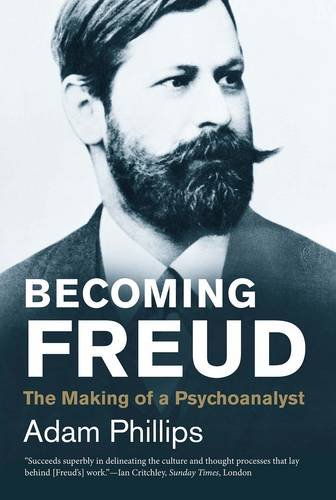
|
|
Product Description
From one of the world’s foremost authorities on Sigmund Freud comes a strikingly original biography of the father of psychoanalysis
Becoming Freud is the story of the young Freud—Freud up until the age of fifty—that incorporates all of Freud’s many misgivings about the art of biography. Freud invented a psychological treatment that involved the telling and revising of life stories, but he was himself skeptical of the writing of such stories. In this biography, Adam Phillips, whom the New Yorker calls “Britain’s foremost psychoanalytical writer,” emphasizes the largely and inevitably undocumented story of Freud’s earliest years as the oldest—and favored—son of Jewish immigrants from Eastern Europe and suggests that the psychoanalysis Freud invented was, among many other things, a psychology of the immigrant—increasingly, of course, everybody’s status in the modern world.
Psychoanalysis was also Freud’s way of coming to terms with the fate of the Jews in Europe in the late nineteenth and early twentieth centuries. So as well as incorporating the writings of Freud and his contemporaries, Becoming Freud also uses the work of historians of the Jews in Europe in this significant period in their lives, a period of unprecedented political freedom and mounting persecution. Phillips concludes by speculating what psychoanalysis might have become if Freud had died in 1906, before the emergence of a psychoanalytic movement over which he had to preside.
Becoming Freud is the story of the young Freud—Freud up until the age of fifty—that incorporates all of Freud’s many misgivings about the art of biography. Freud invented a psychological treatment that involved the telling and revising of life stories, but he was himself skeptical of the writing of such stories. In this biography, Adam Phillips, whom the New Yorker calls “Britain’s foremost psychoanalytical writer,” emphasizes the largely and inevitably undocumented story of Freud’s earliest years as the oldest—and favored—son of Jewish immigrants from Eastern Europe and suggests that the psychoanalysis Freud invented was, among many other things, a psychology of the immigrant—increasingly, of course, everybody’s status in the modern world.
Psychoanalysis was also Freud’s way of coming to terms with the fate of the Jews in Europe in the late nineteenth and early twentieth centuries. So as well as incorporating the writings of Freud and his contemporaries, Becoming Freud also uses the work of historians of the Jews in Europe in this significant period in their lives, a period of unprecedented political freedom and mounting persecution. Phillips concludes by speculating what psychoanalysis might have become if Freud had died in 1906, before the emergence of a psychoanalytic movement over which he had to preside.
Customers Who Bought This Item Also Bought
- WOMEN
- Object Relations in Psychoanalytic Theory
- Winnicott
- Attention Seeking
- Out of Sheer Rage
- Freud and Beyond: A History of Modern Psychoanalytic Thought
- Sleepless Nights (New York Review Books Classics)
- Missing Out
- Psychoanalytic Diagnosis, Second Edition: Understanding Personality Structure in the Clinical Process
- The Silent Woman: Sylvia Plath and Ted Hughes
*If this is not the "Becoming Freud: The Making of a Psychoanalyst (Jewish Lives)" product you were looking for, you can check the other results by clicking this link






